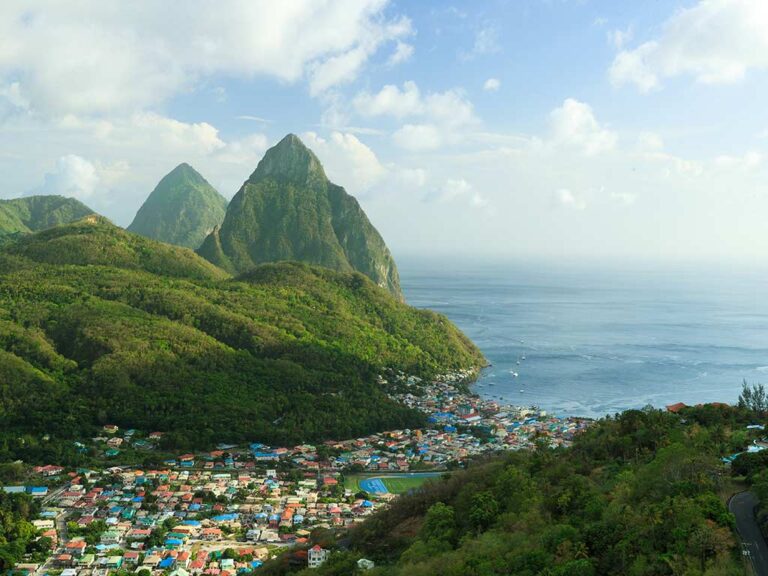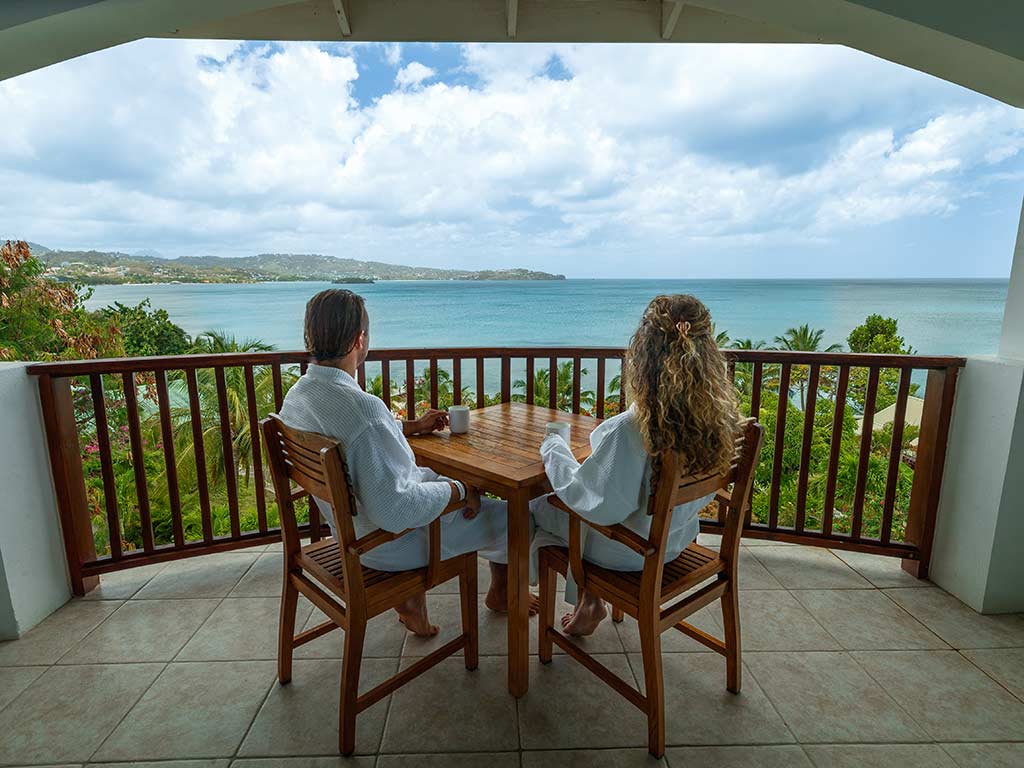
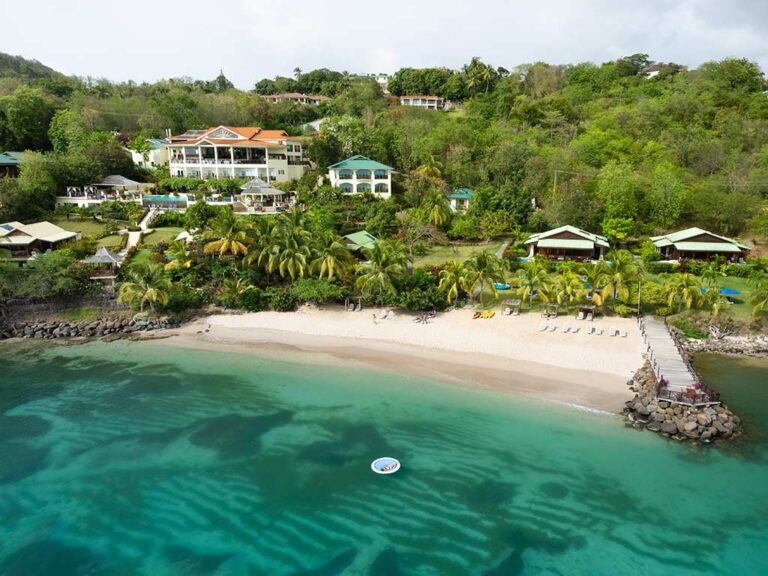
12 Essential St. Lucia Travel Tips August 1, 2022
Like most islands in the Caribbean, St. Lucia is renowned for its soft sand beaches, beautiful blue waters, and infectious tropical vibe. What sets St. Lucia apart from its chain of neighbors is its lush volcanic mountain side and jungle-filled interior.
This makes it a great place to visit for both adventurous travelers and those in need of a little rest and relaxation. No matter what type of traveler you are, there are a few things you need to keep in mind when booking your tropical getaway.
Public transportation is scarce, peak tourist season is expensive, and much of the island is extremely undeveloped. But have no fear, we’ve compiled some of the best St. Lucia travel tips to ensure you have an amazing experience!
1. Best Months to Visit
The peak season on St. Lucia coincides with the cold winter months of North America. From December through April, tourists flock to the island to enjoy some much-needed sunshine. This is the busiest and most expensive time to visit St. Lucia–so avoid it if possible (but we can’t blame you if you ignore this tip!).
The best time to visit the island is between May and June. Temperatures are warm yet mild (highs in the 70s and 80s), and the crowds are virtually non-existent. In addition, rates plummet during this time, so you may be able to get a great deal on accommodations, tours, and flights during this time (score!).
The off-season technically extends from May through November, but hurricane season is in full swing for much of this time (late June through November). Although the risk is relatively low, it’s still a good idea to avoid hurricane season.

2. Entry and Exit Requirements
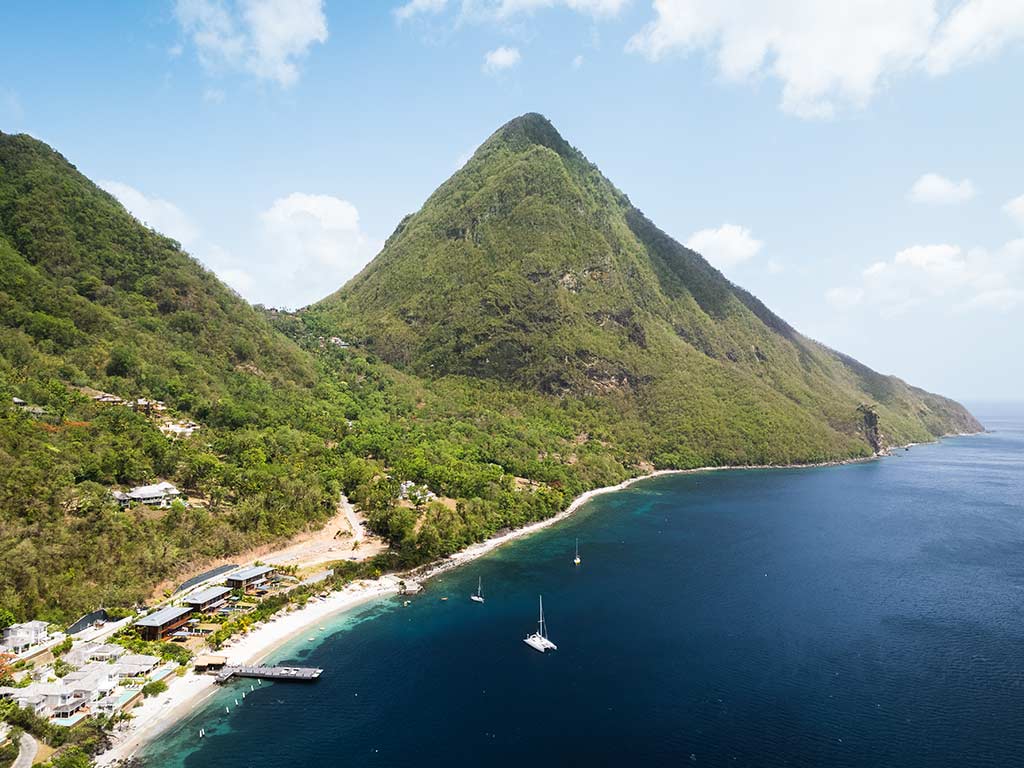
A passport valid for six months out is required to enter St. Lucia. Most North American and European passport holders do not need a visa to visit the island–just be sure you have proof of a return ticket.
There are currently no COVID tests or quarantines required for fully vaccinated travelers. Unvaccinated travelers must show proof of a negative PCR test taken within five days of their departure date. Rules are subject to change, so be sure to get the most up-to-date information on COVID restrictions.
3. Getting Around St. Lucia
Public transportation is not widely available in St. Lucia. There is a fleet of mini buses that transport travelers around the island, and while the buses are frequent, they do not run on any set timetable. This makes it difficult for foreigners to navigate, and they are oftentimes cramped and offer little in the way of ventilation. This won’t be your best choice for comfort and convenience!
There are plenty of land and water taxis available to get you from point A to B, and some hotels and resorts offer airport transfers to guests. If you take a taxi, be sure to agree on the cost of the ride before you get in.
One of the top St. Lucia travel tips for those who want to explore as much of the island as possible is to rent a car! This will save you some money and allow you the freedom to roam wherever and whenever you please.
Note that they drive on the left side of the road in St. Lucia. You should also bear in mind that the island is mountainous, so depending on where you are going, you’ll likely encounter some steep, curvy roads.
Roads are notoriously poor. They are paved, but there are plenty of potholes and no shoulders–if we’re being honest, there is usually room for only 1.5 cars on the road here. Signage is lacking, but the good news is there is only one main island road, so you’re not likely to get lost. Don’t let any of this deter you though, if you’ve driven in a few… interesting… places you’ll be fine!
You can rent a car at the airport or in the city centers of Soufriere, Castries, Gros Islet, and Rodney Bay. Getting a 4-wheel drive vehicle is highly recommended.
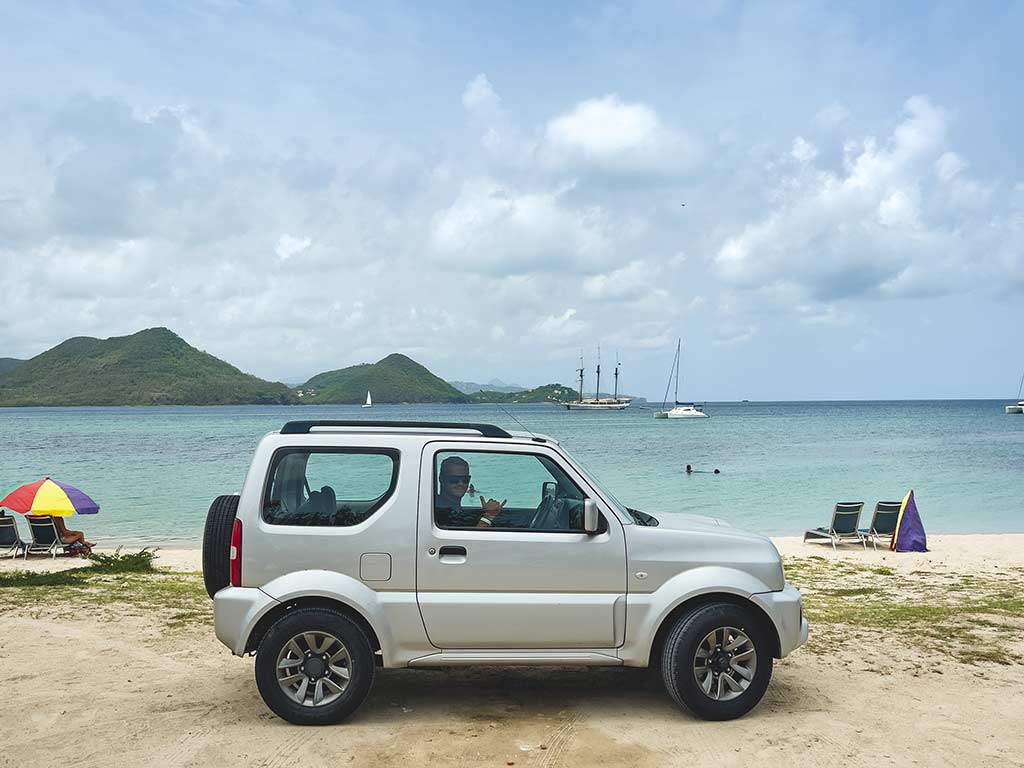
4. Guides and Tours
Hiring local guides and booking tours is super common in St. Lucia. It’s not necessary if you just want to relax on a beautiful beach, but if you want to see more of the island, then having a local show you the ropes is a good idea. There are tons of options available, from snorkeling and scuba diving to horseback riding and hiking. You can book guided tours ahead of time, or get some help from your hotel or resort once you arrive.
If you’re not driving, you won’t have much choice but to book a tour. If you’re staying in the north there are MANY tour companies that will happily take you south to enjoy the Sulphur Springs and the Pitons, two of the best activities in St. Lucia.
5. Language and Currency
The official language of St. Lucia is English. Most people under 40 speak fluent English, and French creole is also widely spoken across the island.
St. Lucia uses the Eastern Caribbean dollar (EC$), though most places also take USD. It’s a good idea to keep a little bit of cash in both currencies on hand, as credit cards are not accepted at all establishments.
Electrical sockets are three-pronged (like the ones in Britain) and use 240 volts, so Americans–don’t forget that travel adaptor!
6. Safety
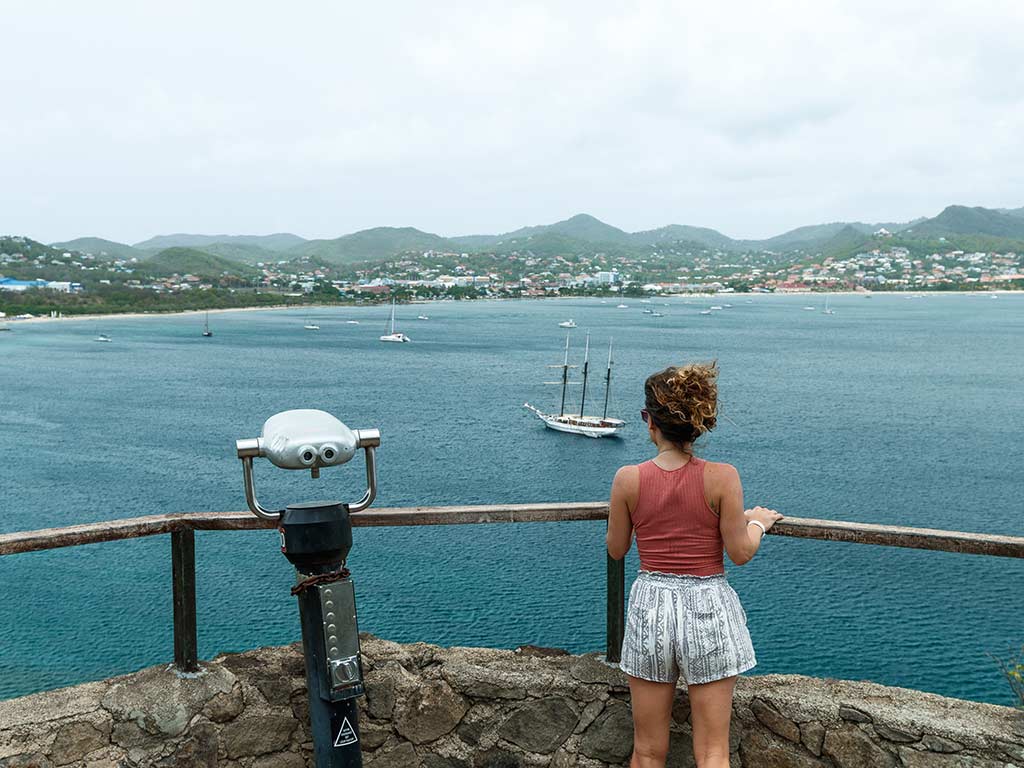
Although the crime rate is low, there are a few St. Lucia travel tips that will help keep you extra safe during your time here.
- Only use authorized taxis. Luckily, these are easily identified by their light blue license plate and TX prefix.
- Don’t carry obscene amounts of cash, especially in crowded areas. Do not leave your belongings unattended at the beach or in your car.
- Avoid visiting during hurricane season–June through November.
- If you plan on renting a car, be aware of fearless local drivers and pot-hole-ridden roads. There are also steep inclines with lots of blind spots, so drive slowly and don’t let the beautiful scenery distract you! Let people pass you when you have the opportunity to pull over.
7. No Private Beaches
8. How to Save Money in St. Lucia

This island oasis may not be a top pick for budget travelers, but there are a few St. Lucia travel tips you can consider for saving money on your upcoming trip.
Flights are cheaper during the shoulder season or off-season, as are many tours and resorts. This is especially true during hurricane season (June through November), though some restaurants and other attractions may be shut. Tours are usually cheaper if you book them in advance, especially if you visit during the peak season (December through April).
If you plan on exploring more than one area of the island, renting a car is cheaper than taking a taxi back and forth. You could also try to make sense of the local minibus routes, though this will likely cut into the time you could spend laying on the beach or hiking the Pitons.
9. What to Eat
St. Lucia is a culmination of many different cultures, so you know the food here is something special! The cuisine is an ode to Amerindian, French, African, and British culinary influences. Be sure to try some of the island’s traditional dishes while you’re here, including green figs and saltfish, Lambi (conch), and Paime (yummy dessert), among many others.
Of course, seafood is also served up in abundance–this is an island, after all. One of the best places to indulge in fresh-caught seafood is the Gros Islet Fish Fry, held every Friday night.
You should also frequent at least one rum shop while you’re here, and the more adventurous eaters can try some out-there delicacies like Cowhead Sous (a stew made with the skin of a cow head) and fresh Boudin (a black pudding that requires an acquired taste).
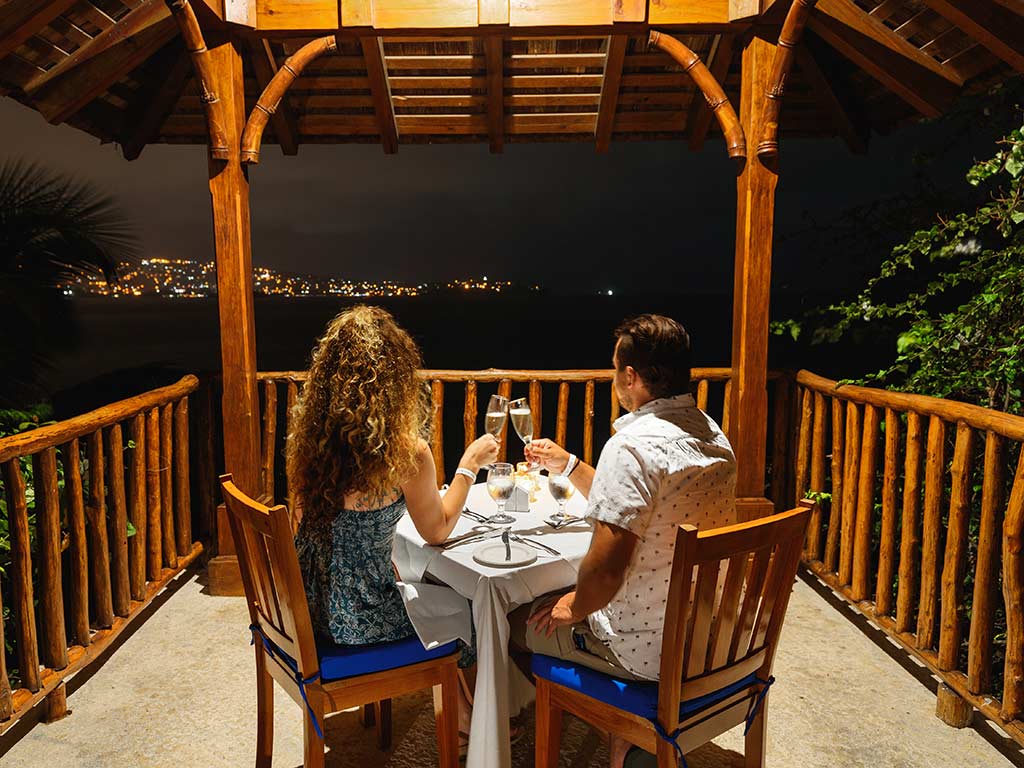
10. Tipping
11. What to Pack
The weather is spectacular year-round in St. Lucia, so less is more when it comes to packing for this tropical island. Aside from your swimwear, pack some hiking gear if you want to tackle the Pitons.
Some establishments don’t take cards, and ATMs are not as prevalent as many other destinations, so bring cash (including small bills) or at least hit up the ATM at the airport.
The sun is intense here, so you’ll need plenty of sun protection like a hat and sunscreen–make sure it’s reef safe!
After the sun goes down, swap your sunscreen for insect repellent. The mosquitos and midges come out in hoards in the evenings.
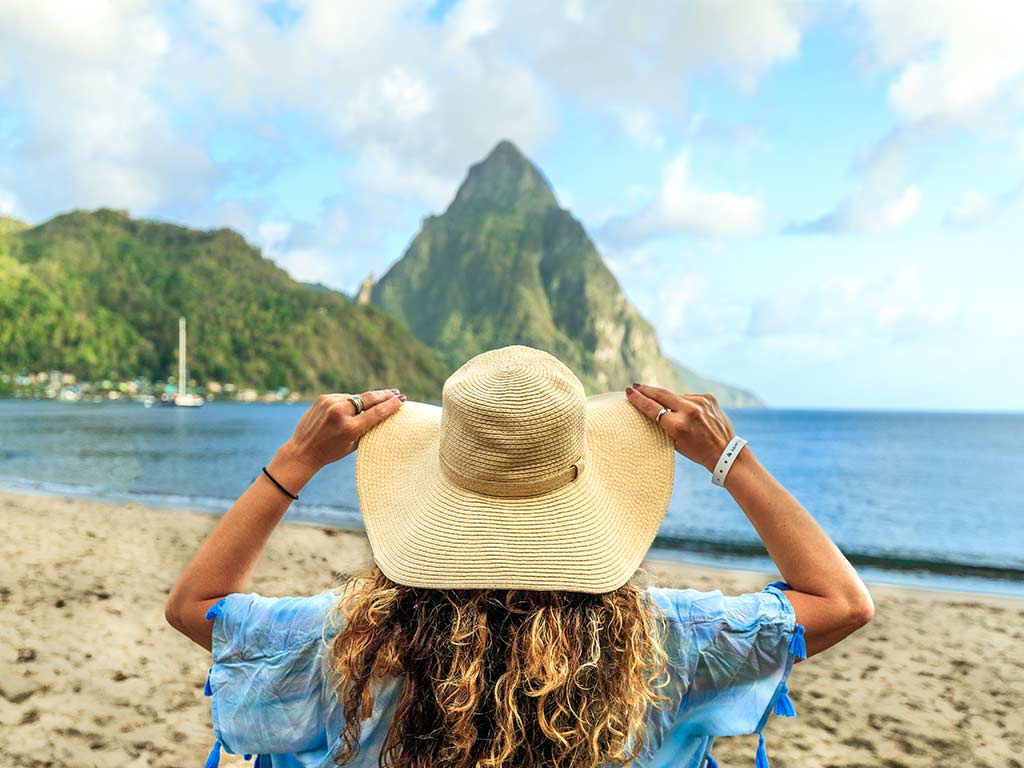
12. Where to Stay
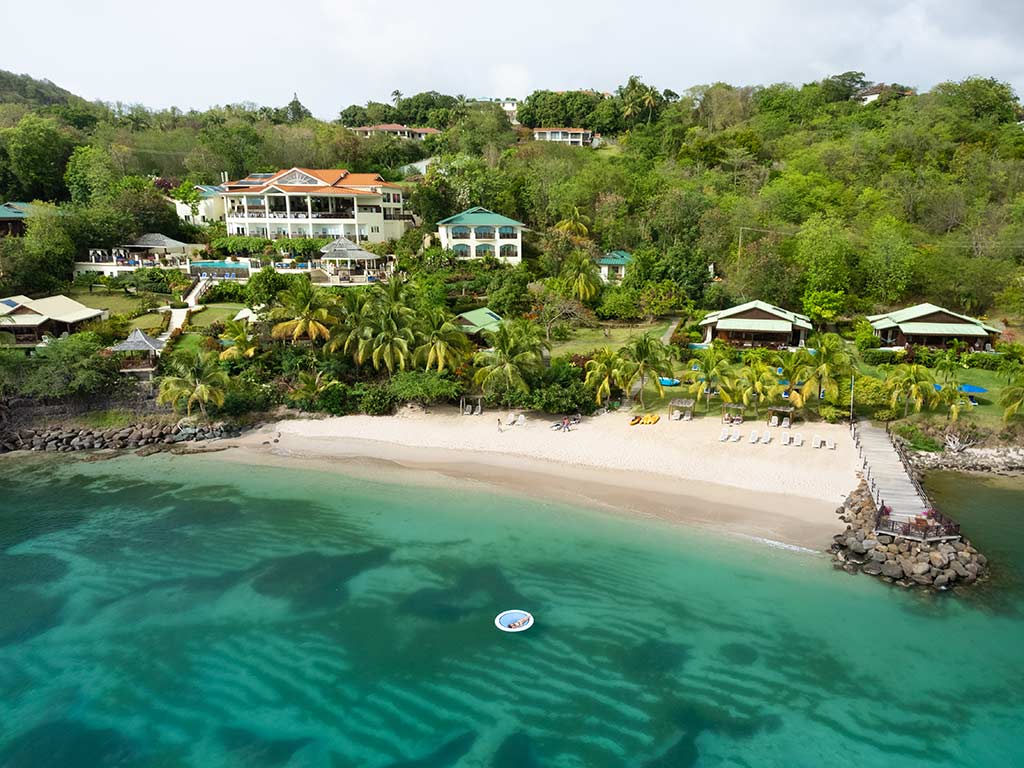
There are a ton of options when it comes to accommodation in St. Lucia, but few places can rival the offerings of Calabash Cove Resort & Spa. This adults-only resort sits on the island’s northwestern coast on the outskirts of Rodney Bay and Corinth.
This is the perfect romantic resort for newlyweds or couples that have been together for decades. Guests can choose between ocean-view suites, swim-up suites, and water’s edge cottages with plunge pools and outdoor showers.
There’s also a long list of curated amenities to please every type of guest, including a (seemingly) private beach, an infinity pool with a swim-up pool, a spa, and beautiful gardens overlooking the ocean. Guests can also enjoy a variety of resort activities during their stay, like kayaking, paddle boarding, yoga, and nature walks.
One of the best things about Calabash Cove Resort & Spa is that it can be booked as an all-inclusive resort, which means all your meals, drinks, and room service are included with your room rate. With that said, this is a 5-star hotel so don’t expect a salad buffet or some lame chicken tenders on offer. You’ll have a proper menu to choose from with exquisite food served up for breakfast, lunch, and dinner. It doesn’t get much better than this!
